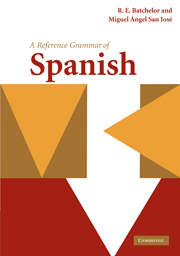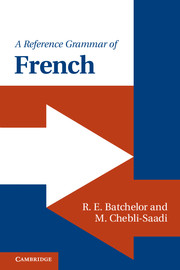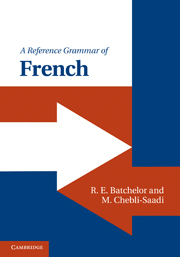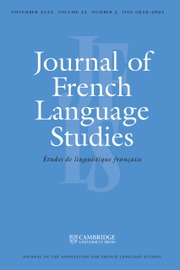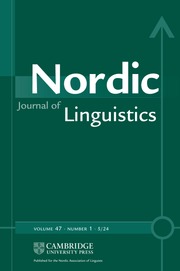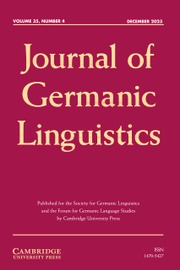A Reference Grammar of Spanish
A Reference Grammar of Spanish is a comprehensive handbook on the structure of the Spanish language. Keeping technical terminology to a minimum, it provides a detailed yet clear point of reference on all the intricacies of Spanish grammar, covering word order, parts of speech, verb use, syntax, gender, number, alphabet, and pronunciation. Accompanied by a wealth of carefully chosen examples, it looks at Spanish in Iberia, the USA, Mexico, and Argentina, and demonstrates the differences between these varieties. It is designed specifically with English-speaking learners in mind, and contains useful tools such as a glossary of terms, an index, and a detailed examination of different registers of the language. Clearly structured and systematically organised, this volume is set to become the standard guide to the grammar of contemporary Spanish, and will be an invaluable resource for teachers and students, as well as a practical supplement to textbooks and classroom study.
- Covers multiple varieties of Spanish, as spoken in Spain, Mexico, Argentina, California, etc.
- Most chapters begin with a creative piece of writing, which illustrates the grammatical features analysed in the chapter
- Keeps technical terminology to a minimum
Reviews & endorsements
'A Reference Grammar of Spanish joins the ranks as a well-developed and well-written scholarly reference for researchers, faculty and Spanish language students around the world. It gives the spoken and written varieties among the world's Spanish speakers. A grammar book should not be prescriptive or impose one language variety on another. The role of a comprehensive grammar should be to assess and to analyze what is spoken among constituents, not to gauge against a stand-alone variety. Batchelor and San José accomplish their goal well.' The Modern Language Journal
Product details
April 2010Paperback
9780521728751
574 pages
247 × 174 × 26 mm
1.12kg
Temporarily unavailable - available from TBC
Table of Contents
- 1. Table of contents/Índice de materias
- 2. Preface/Prólogo
- 3. Introduction to the Spanish language/Introducción a la lengua Española
- 4. Acknowledgements/Agradecimientos
- 5. Glossary/Glosario
- 6. Bibliography/Bibliografía
- 7. Abbreviations/Abreviaturas
- 8. Register/Registro
- 9. Alphabet, spelling, pronunciation/Alfabeto, ortografía, pronunciación
- 10. Stress and accent marks/Acento tónico y acento ortográfico
- 11. Punctuation/Puntuación, upper case, lower case/mayúsculas, minúsculas
- 12. Apocopation/Apócope
- 13. Agreement/Concordancia
- 14. Definite article/Artículo definido
- 15. Indefinite article/Artículo indefinido
- 16. Gender/Género
- 17. Number (singular and plural)/Número (singular y plural)
- 18. Verbs: moods of verbs/Verbos: modos de verbos
- 19. The infinitive/El infinitivo
- 20. Compound perfect infinitive/Infinitivo pretérito perfecto
- 21. Infinitive viewed as a noun/Infinitivo como sustantivo
- 22. Present tense/Tiempo presente
- 23. Perfect tense/Pretérito perfecto
- 24. Irregular past participles/Participios de pasado irregulares
- 25. Verbs with 2 past participles/Verbos con 2 participios de pasado
- 26. Past participles as nouns/Participios de pasado con función de sustantivos
- 27. Ablative absolute/Ablativo absoluto
- 28. Verbs + infinitive when that is used in English/Verbos + infinitivo cuando se usa that en inglés
- 29. Pluperfect tense/Pretérito pluscuamperfecto de indicativo (antecopretérito - A/M)
- 30. Imperfect tense/Pretérito imperfecto de indicativo (copretérito - A/M)
- 31. Preterit/Pretérito
- 32. Contrasts with the imperfect, preterit and perfect tenses/Contrastes con el pretérito, imperfecto, el pretérito y el pretérito perfecto
- 33. Future tense/Futuro
- 34. Future perfect tense/Futuro perfecto
- 35. Conditional tense/Condicional simple
- 36. Conditional perfect tense/Condicional perfecto (antepospretérito - M)
- 37. Progressive tense or gerund/Progresivo o gerundio
- 38. Imperative/Imperativo
- 39. Irregular verbs/Verbos irregulares
- 40. Radical changing verbs/Verbos con cambio vocálico (diptongación, y verbos del tipo pedir) (i.e. e>i)
- 41. Verbs with orthographical changes/Verbos con cambios ortográficos
- 42. Uses and contrasts of ser and estar/Usos y contrastes de ser y estar
- 43. Uses of quedar, resultar etc. as substitutes for ser and estar (including hay)/Usos de quedar, resultar etc. como sustitutos de ser y estar (incluyendo hay)
- 44. Transitive and intransitive verbs/Verbos transitivos e intransitivos
- 45. Reflexive verbs/Verbos reflexivos
- 46. Passive voice/Voz pasiva
- 47. Defective verbs/Verbos defectivos
- 48. Modal auxiliary verbs/Verbos auxiliares modales
- 49. Ellipsis of verbs in main and subordinate clauses/Elipsis de verbos en oraciones principales y subordinadas
- 50. Uses of dar, haber, ir, llevar, seguir, tener, venir/Usos de dar etc.
- 51. Impersonal verbs/Verbos impersonales
- 52. Verbs of perception + infinitive or gerund/Verbos de percepción + infinitivo o gerundio
- 53. Periphrastic verb forms/Verbos con formas perifrásticas
- 54. Subordinate clauses related to time/Oraciones subordinadas referentes al tiempo (duración)
- 55. Subordinate clauses related to concession/Oraciones subordinadas concesivas
- 56. Subordinate clauses related to condition/Oraciones subordinadas condicionales
- 57. Subordinate clauses related to consequence/Oraciones subordinadas consecutivas
- 58. Subordinate clauses related to manner/Oraciones subordinadas de modol
- 59. Verbs concerning unrealized actions/Verbos referentes a acciones no realizadas o inacabadas
- 60. Complex verbal expressions/Expresiones complejas de tipo verbal
- 61. Verbs of movement in English and Spanish/Verbos indicando movimiento en inglés y español
- 62. Subjunctive mood/Modo subjuntivo
- 63. Personal pronouns/Pronombres personales
- 64. Possessive adjectives and pronouns, also usage with parts of the body and clothes/Adjetivos y pronombres poses

